Prepare with confidence for your Adult Health Exam with this comprehensive 2025 study guide, featuring 150 meticulously crafted questions designed to mirror the rigor and scope of the actual exam. Each question is paired with expert-verified answers and in-depth rationales that clarify complex concepts, reinforce critical thinking, and enhance retention. Covering key topics such as pathophysiology, pharmacology, patient care, and clinical decision-making, this resource aligns with the latest evidence-based practices and exam standards. Whether you’re a nursing student, healthcare professional, or educator, this guide provides a robust framework for mastering adult health content, identifying knowledge gaps, and achieving exam success. Updated for 2025, it includes emerging trends in healthcare and new clinical guidelines to ensure relevance and accuracy.
Preview
1. A client recently diagnosed with Ménière’s disease is struggling with tinnitus. How
does the nurse provide support to this client?
A. Provide further assessment.
B. Suggest a quiet environment.
C. Suggest temporary removal of a hearing aid.
D. Refer the client to the American Tinnitus Association. (Correct Answer: D)
Rationale: The American Tinnitus Association provides resources and support for
individuals struggling with tinnitus. While a quiet environment may help some clients,
professional support and guidance from an organization specializing in tinnitus
management can be more effective.
2. An older adult client reports ear pain. To differentiate the cause, which clinical
manifestation is more indicative of otitis media?
A. Dry, flaky cerumen
B. Pain on movement of the tragus
C. Ringing in the ears
D. Vertigo (Correct Answer: D)
Rationale: Vertigo is a key symptom of otitis media, as inflammation in the middle ear can
affect balance and equilibrium. Pain on tragus movement is more indicative of otitis
externa, and dry cerumen does not suggest an infection.
3. An older adult client reports nausea during removal of impacted cerumen from the
ear canal. What does the nurse do next?
A. Administer an antiemetic.
B. Call the health care provider.
C. Stop irrigation immediately. (Correct Answer: C)
D. Use less water to irrigate.
Rationale: The vagus nerve (cranial nerve X) can be stimulated during ear irrigation,
causing nausea and even syncope. Stopping the procedure immediately prevents further
adverse effects.
4. Which type of drug therapy does the nurse anticipate giving to a client with
Ménière’s disease to decrease endolymph volume?
A. Antihistamines
B. Antipyretics
C. Diuretics (Correct Answer: C)
D. Nicotinic acid
Rationale: Diuretics, such as hydrochlorothiazide, are often prescribed to reduce fluid
buildup in the inner ear, thereby decreasing vertigo episodes associated with Ménière’s
disease.
does the nurse provide support to this client?
A. Provide further assessment.
B. Suggest a quiet environment.
C. Suggest temporary removal of a hearing aid.
D. Refer the client to the American Tinnitus Association. (Correct Answer: D)
Rationale: The American Tinnitus Association provides resources and support for
individuals struggling with tinnitus. While a quiet environment may help some clients,
professional support and guidance from an organization specializing in tinnitus
management can be more effective.
2. An older adult client reports ear pain. To differentiate the cause, which clinical
manifestation is more indicative of otitis media?
A. Dry, flaky cerumen
B. Pain on movement of the tragus
C. Ringing in the ears
D. Vertigo (Correct Answer: D)
Rationale: Vertigo is a key symptom of otitis media, as inflammation in the middle ear can
affect balance and equilibrium. Pain on tragus movement is more indicative of otitis
externa, and dry cerumen does not suggest an infection.
3. An older adult client reports nausea during removal of impacted cerumen from the
ear canal. What does the nurse do next?
A. Administer an antiemetic.
B. Call the health care provider.
C. Stop irrigation immediately. (Correct Answer: C)
D. Use less water to irrigate.
Rationale: The vagus nerve (cranial nerve X) can be stimulated during ear irrigation,
causing nausea and even syncope. Stopping the procedure immediately prevents further
adverse effects.
4. Which type of drug therapy does the nurse anticipate giving to a client with
Ménière’s disease to decrease endolymph volume?
A. Antihistamines
B. Antipyretics
C. Diuretics (Correct Answer: C)
D. Nicotinic acid
Rationale: Diuretics, such as hydrochlorothiazide, are often prescribed to reduce fluid
buildup in the inner ear, thereby decreasing vertigo episodes associated with Ménière’s
disease.
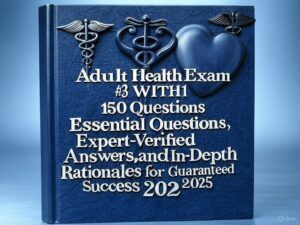
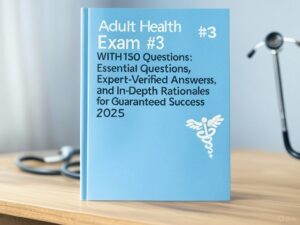


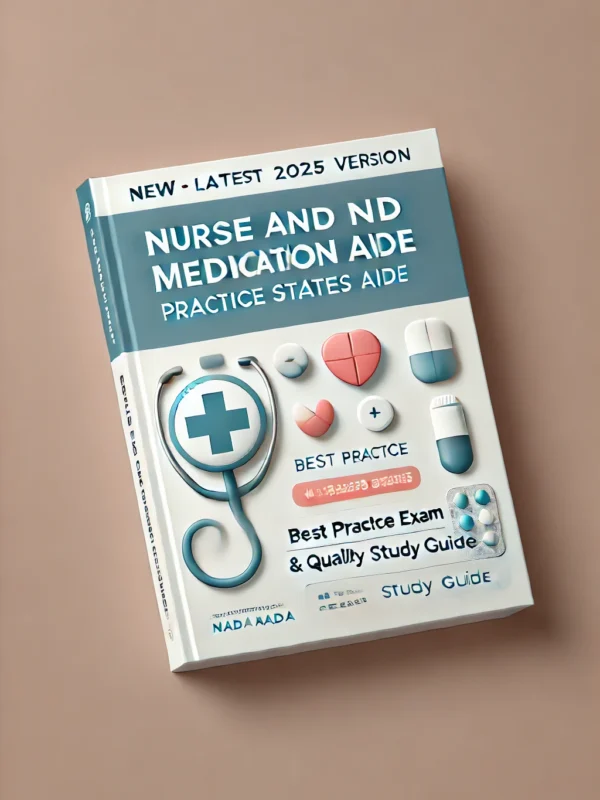

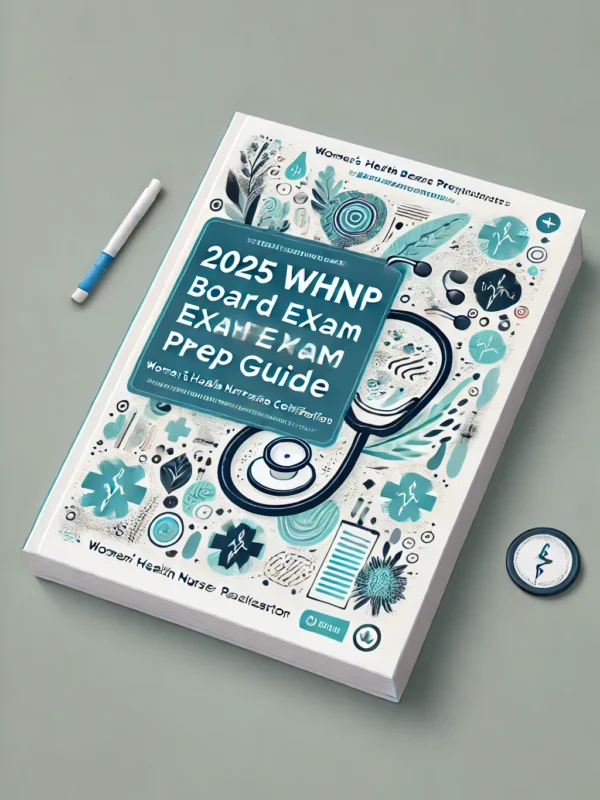
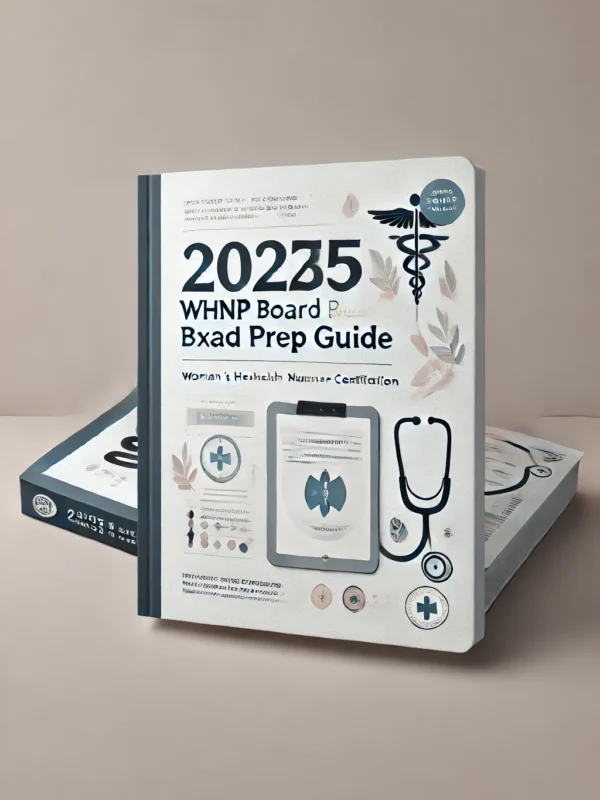
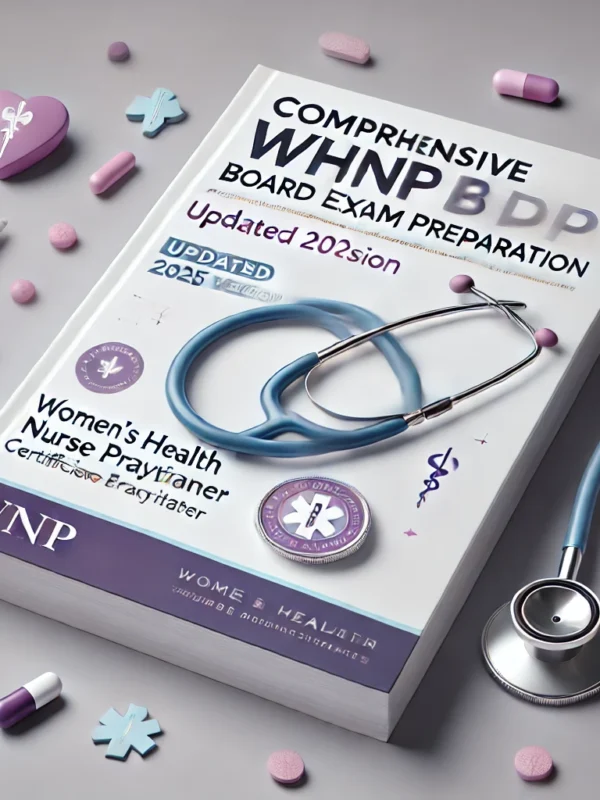
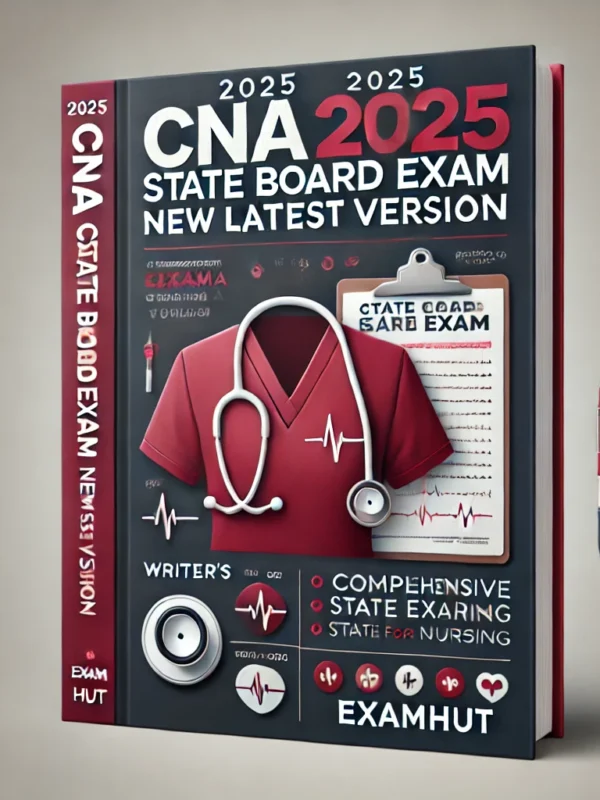

Reviews
There are no reviews yet.